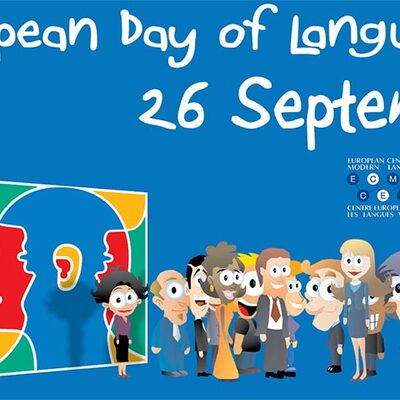Recognised on September 26, the European Day of Languages is a means of promoting the importance of language learning and protecting linguistic heritages.
Individuals and businesses alike can benefit from the cultural and economic advantages which language skills can bring, such as;
For businesses:
-
Increasing the reach of your business growth
-
Understanding the best ways to communicate with target audiences in a variety of countries and markets
-
Creating deeper and more personal connections with customers in a variety of countries
-
Building a better understanding of the culture and lifestyles that resonate with your markets and target customers
For individuals:
-
Increasing your employability
-
Opening up a much wider range of job prospects
-
Can improve salary prospects as you have a more advanced skillset that monolingual candidates
-
Build deeper connections with potential employers, colleagues, customers and clients
Let’s take a look in more detail…
Going global
An increasing number of businesses operate on a worldwide scale and across borders. In addition to this, the internet has made international trading easier than ever, creating opportunities for substantial growth.
Achieving business success in a foreign market requires adaptation to the nuances and sensibilities of foreign markets, so being able to effectively converse with your clients in other languages is a key aspect of going global.
Accurate communication
Employing foreign workers or learning different languages yourself can open up many opportunities for your business, while ensuring accurate client interactions.
It doesn’t matter how effectively your business can offer its services if you’re unable to effectively communicate and promote them.
Foreign language speaking employees also expedite the pace of doing business, creating a more efficient workflow.
Extra connection
Speaking to people in their own language demonstrates a personal touch and will improve your wider reputation, positioning your brand as a business that cares about its customers and clients and goes the extra mile to build meaningful relationships.
Effective communication and conversation breaks down cultural differences, builds trust and promotes respect. This means that cultural awareness is important when dealing with clients and failure to consider their customs, beliefs and ways of doing business can have a detrimental commercial impact.
Digital dialect
Cultural awareness is also vital when it comes to translating your website, given that an established online presence is a huge factor to consider when expanding your business abroad. It will allow customers from all over the globe to use your site, therefore it is important to take into account cultural preferences, such as sense of humour or political leanings.
It is ideal for content to be properly translated by an expert, rather than being converted word for word using an online tool. Other elements of your website will also need to be altered with cultural differences in mind, such as the chosen imagery and format.
Market insights
Knowing the language of your target market, or employing people who can speak and understand it, will help to adapt your commercial goals and strategies by allowing you to localise your approach.
In addition, hiring people from the country you want to do business in diversifies your workforce which allows you to learn even more about the markets of the nation as well as adding innovative ideas and a unique understanding to your team
Native employees can offer key insights, such as the most popular social media channels in that country or the key holidays and calendar dates to know. Employees from the region may also have contacts in the area, giving you a competitive edge and the chance to grow your foreign partnerships.
Which languages should you learn?
While English is traditionally regarded as the global business language, the need for foreign tongues is rising. According to Babbel, the 10 most spoken languages in the world (by total number of speakers) are:
-
English
-
Mandarin Chinese
-
Hindi
-
Spanish
-
Arabic
-
Bengali
-
French
-
Russian
-
Portuguese
-
Urdu
Adding any of these to your skill set will be time well spent. You can also research the specific markets of your business and focus on learning a language that will directly benefit your long term career or company goals.
Whether you decide to employ foreign workers or learn different languages yourself, the importance of multilingualism in business cannot be overemphasised. If you are able to seamlessly interact with clients, learn their culture, understand which languages are the most useful to know and market to the different countries you trade in, you are more likely to enjoy success.
If you would like to talk about your foreign language hiring needs or plans for overseas expansion in more detail, please get in touch with our team.







